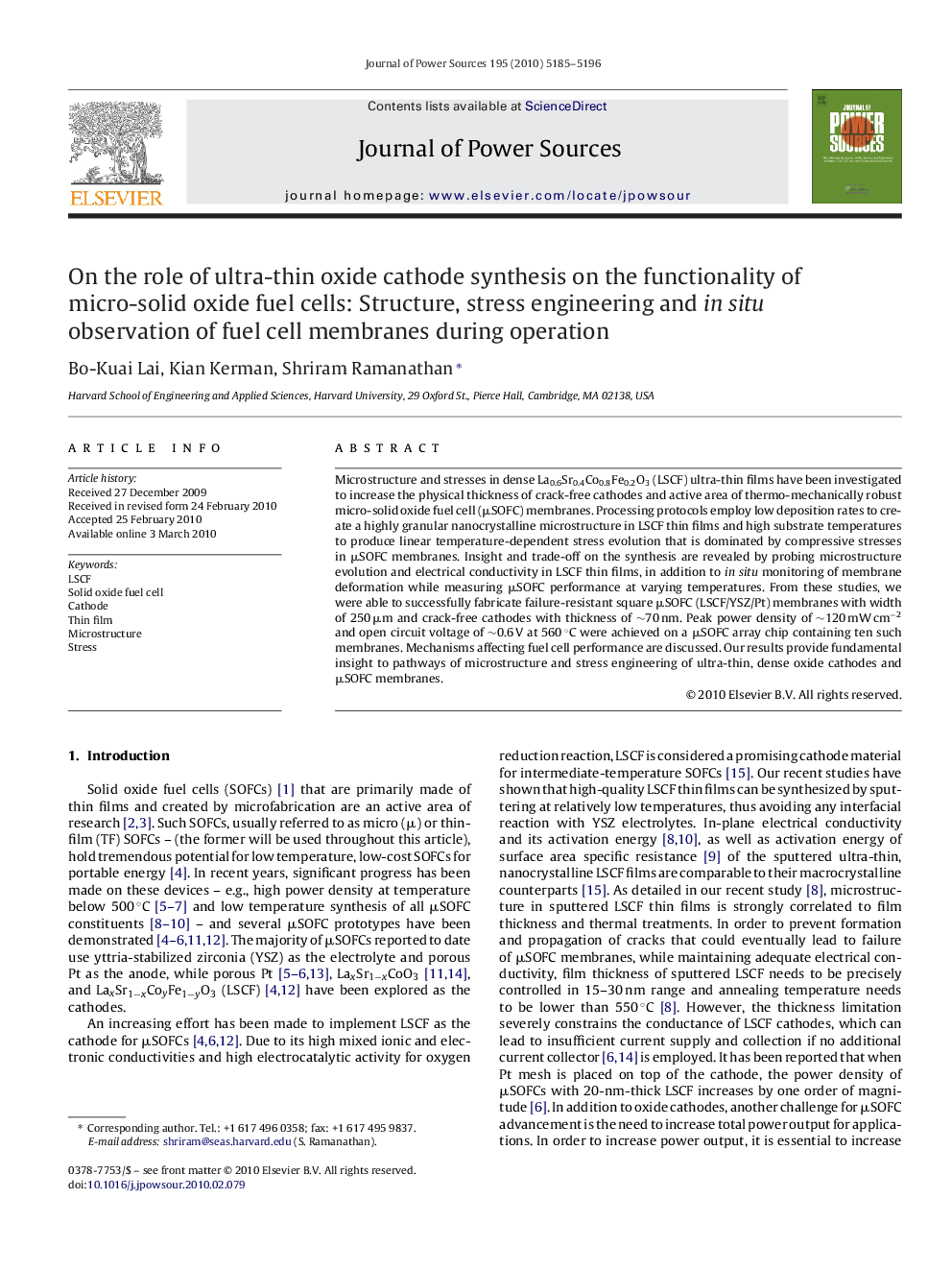| Article ID | Journal | Published Year | Pages | File Type |
|---|---|---|---|---|
| 1284915 | Journal of Power Sources | 2010 | 12 Pages |
Microstructure and stresses in dense La0.6Sr0.4Co0.8Fe0.2O3 (LSCF) ultra-thin films have been investigated to increase the physical thickness of crack-free cathodes and active area of thermo-mechanically robust micro-solid oxide fuel cell (μSOFC) membranes. Processing protocols employ low deposition rates to create a highly granular nanocrystalline microstructure in LSCF thin films and high substrate temperatures to produce linear temperature-dependent stress evolution that is dominated by compressive stresses in μSOFC membranes. Insight and trade-off on the synthesis are revealed by probing microstructure evolution and electrical conductivity in LSCF thin films, in addition to in situ monitoring of membrane deformation while measuring μSOFC performance at varying temperatures. From these studies, we were able to successfully fabricate failure-resistant square μSOFC (LSCF/YSZ/Pt) membranes with width of 250 μm and crack-free cathodes with thickness of ∼70 nm. Peak power density of ∼120 mW cm−2 and open circuit voltage of ∼0.6 V at 560 °C were achieved on a μSOFC array chip containing ten such membranes. Mechanisms affecting fuel cell performance are discussed. Our results provide fundamental insight to pathways of microstructure and stress engineering of ultra-thin, dense oxide cathodes and μSOFC membranes.
